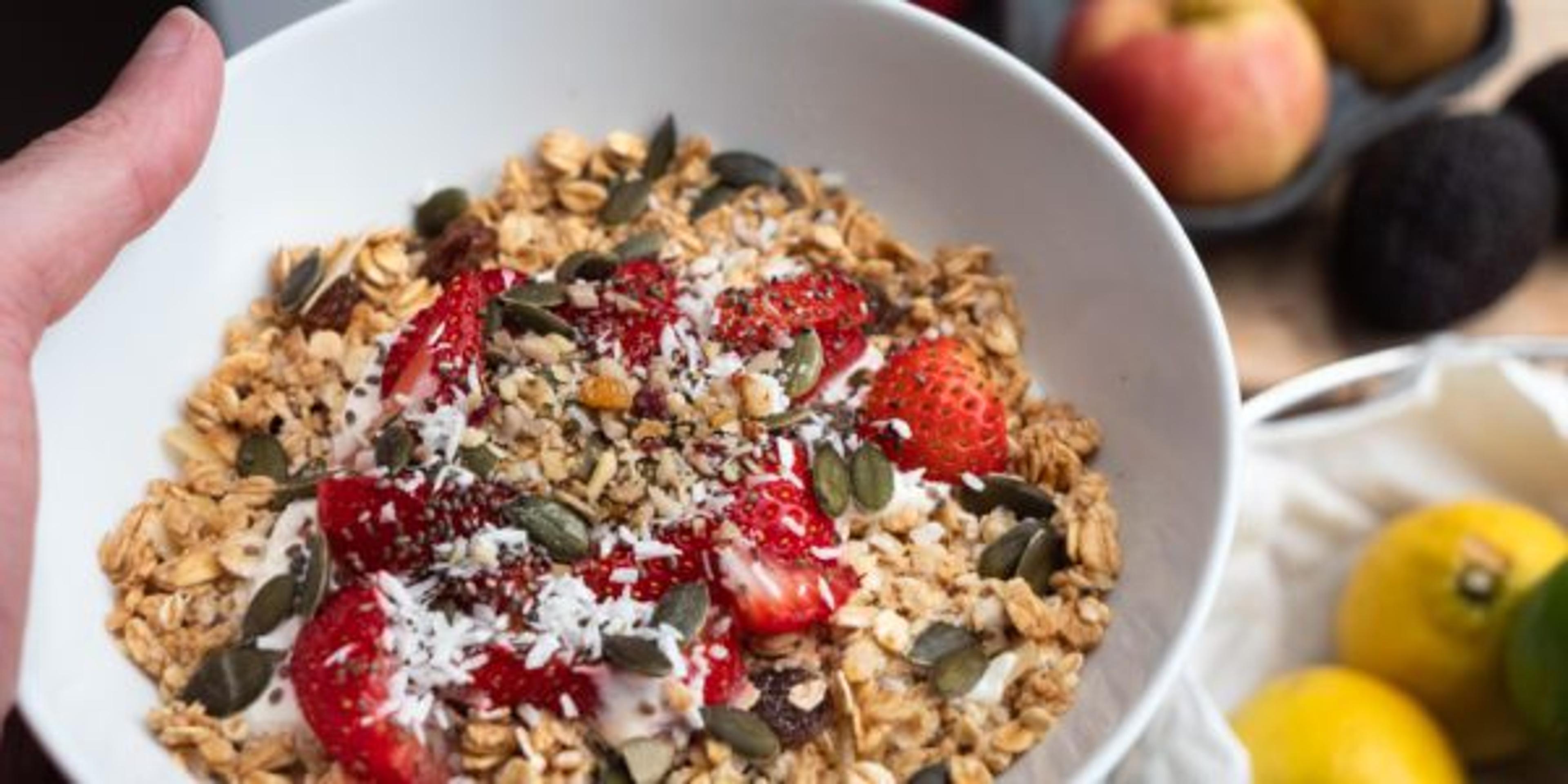Want to Keep Your Colon Healthy? Try These Recipes
Shandra Martinez
| 4 min read

When friends get together and find themselves swapping workout suggestions, directions to their favorite trail or maybe just the ingredient list for their morning smoothie, somehow tips on how to eat to keep your colon healthy just never seem to come up. But maybe they should. With so many people focused on living better and eating well, it’s important to learn how to fix meals that will help your digestive system work properly. We’re sharing some foods and recipe suggestions for keeping your colon healthy. Feel free to pass them on.
Eating foods that keep your insides in good shape is also a way to prevent disease. The American Cancer Society estimates there will be more than 45,000 new cases of rectal cancer diagnosed in the United States this year, and more than 104,000 new colon cancer cases. Other conditions can affect that area of the body, including irritable bowel syndrome and colitis.
Regular exercise and lifestyle changes that include a better diet can go a long way toward keeping your colon healthy, according to Rush University Medical Center in Chicago. Staff there put together a great list for people who want to reach that goal by focusing on what they are putting on their plate.
Keep a lid on sugar. While sugar does not directly cause colon issues, people who consume lots of added sugar each day – think soda, candy and preservative-laden sauces and dressings – typically have diets low in fiber. Aim to keep added sugar consumption down to 25 grams a day or less for women and 36 grams a day or less for men.
- Recipe suggestion: Serve a bowl of fresh, sliced fruit with lunch, or as individual servings after dinner in place of dessert. It’s a sweet treat with no added sugar.
Swap in whole grains. Flip over the packaging on your breads and starches and look at the ingredients. Look for “whole wheat” or “whole grain” as the first ingredient. Find other ways to work whole grains into your diet, like oatmeal, wild or brown rice, barley and quinoa.
- Recipe suggestion: Stir some brown or wild rice into soup for a heartier dish or sauté your favorite vegetables and serve them over a dish of quinoa cooked in chicken or vegetable broth for added flavor.
Find your fiber. A high-fiber diet should be your goal because it boosts your intestinal and colon health. You want to aim for about 30 grams of fiber each day. If your daily tally is far below that, take small steps and work your way up to the target while making sure you drink plenty of water. Begin your day with a bowl of oatmeal (4 grams), grab an apple (2.5 grams) or a cup of raspberries (8 grams) for a morning snack.
- Recipe suggestion: Make some Easy Overnight Oats by stirring together a half-cup of milk, 2 tablespoons nut butter, 1 teaspoon maple syrup and ¾ tablespoon chia seeds into a small container. Add a half cup of rolled oats and press down until oats are moistened. Cover and let sit overnight. In the morning, stir and serve. Fresh fruit can be added on top or served on the side.
Other fiber-rich foods that should be on your shopping list:
- Lentils
- Kidney beans or other cooked, canned beans
- Avocados
- Chia seeds
- Dark chocolate
- Almonds
- Berries
- Bananas
Change up your proteins. Processed meats like deli sliced turkey and ham are sandwich staples and make for easy protein additions at breakfast and lunch. However, research continues to show that processed meats – high in sodium and preservative chemicals – are associated with chronic illnesses. In fact, a study found individuals who ate red or processed meat four or more times per week had a 20% higher risk of colon cancer than those who consumed it less than twice per week. Ditch the lunchmeat for these alternatives:
Spreads:
- Cottage cheese
- Hummus
- Almond, peanut or other nut/seed butter
Toppings:
- Scrambled or sliced boiled eggs
- Silken tofu
- Flavored tuna packs
- Sliced grilled chicken
- Black beans or chickpeas
- Recipe suggestion: Lunchmeat Alternatives Featuring Flavorful and Colorful Toasts
Related:
Photo credit: Getty Images





